Life can feel overwhelming, and stress often shows up not just in your mind but in your body. Caring for your body with simple routines can help you feel calmer and more balanced each day. Small habits like moisturizing, gentle stretching, or using soothing body products can create a sense of comfort and relaxation.
Focusing on body care gives you a chance to slow down and reconnect with yourself, even if just for a few minutes. Whether it’s a calming body wash, nourishing lotion, or mindful moments spent caring for your skin, these acts can ease tension and help your mind unwind.
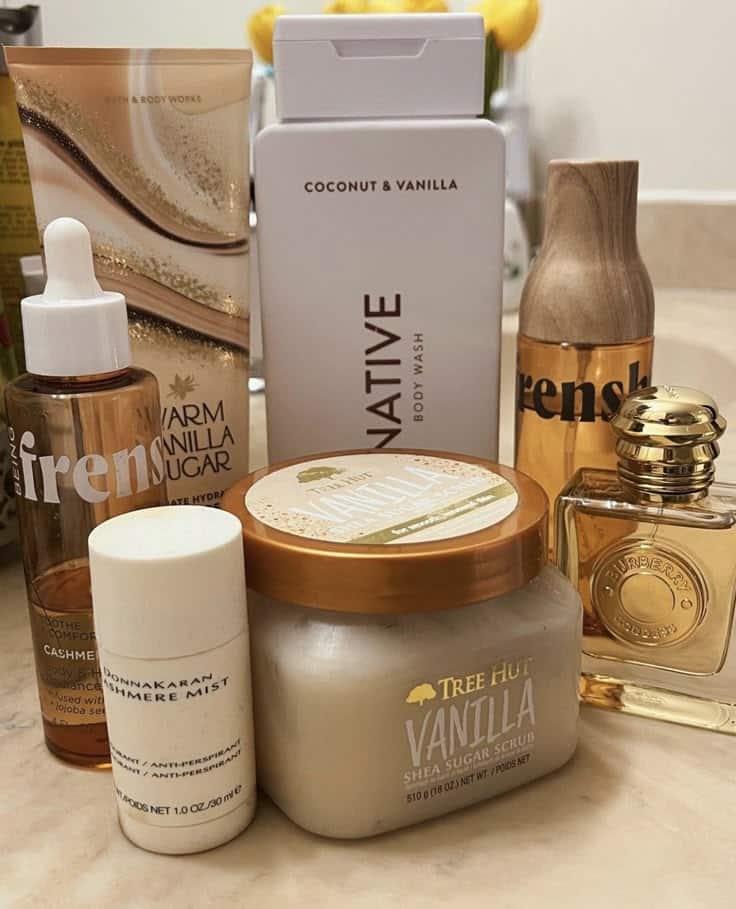
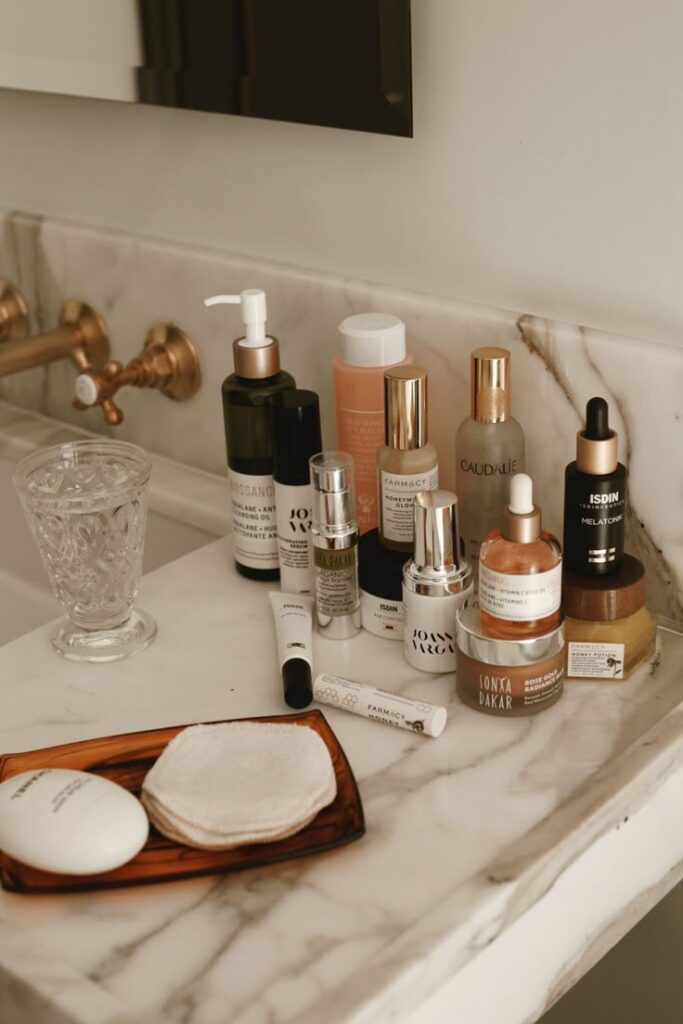
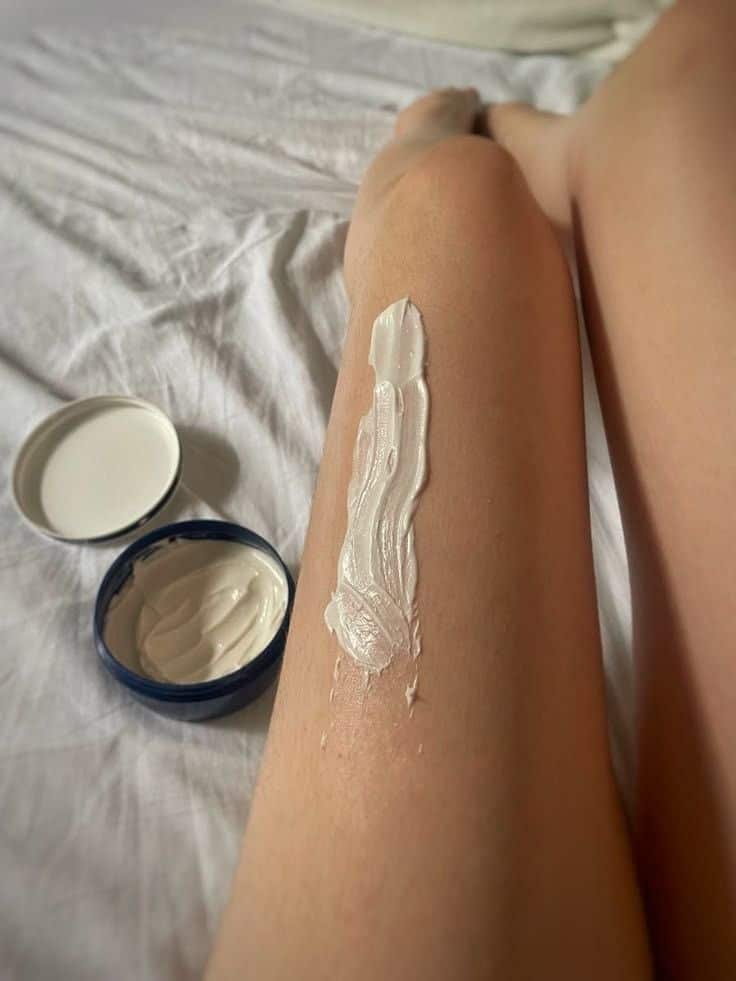
Key Takeaways
- Body care routines can reduce stress and improve your mood.
- Simple steps like cleansing, moisturizing, and relaxing help you feel balanced.
- Holistic approaches enhance both physical comfort and emotional well-being.
Understanding Body Care as an Anti-Stress Practice
Caring for your body goes beyond appearance—it has measurable effects on how you feel physically and emotionally. Stress can show up in your skin, your body’s reactions, and in the way you notice subtle changes in your health.
The Connection Between Stress and Skin Health
Your skin is one of the first places where stress can become visible. When you experience ongoing tension, your body increases the production of stress hormones like cortisol. This can result in extra oil production, making acne or breakouts more likely.
Prolonged stress may slow the skin’s repair processes, keeping wounds or irritations from healing as quickly. Redness, flare-ups, and even chronic skin conditions, such as eczema or psoriasis, can become more noticeable during stressful periods.
Paying attention to regular cleansing, moisturizing, and gentle skin care routines—and avoiding harsh products—can help support your skin’s barrier when you’re under pressure. Using products that focus on hydration and barrier protection is especially helpful.
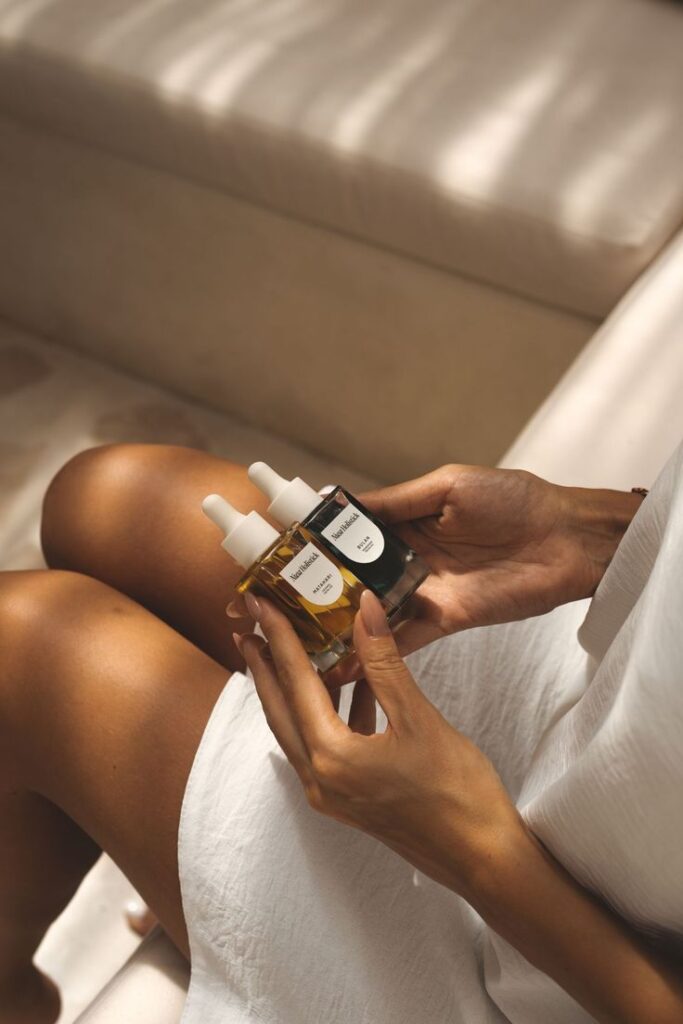
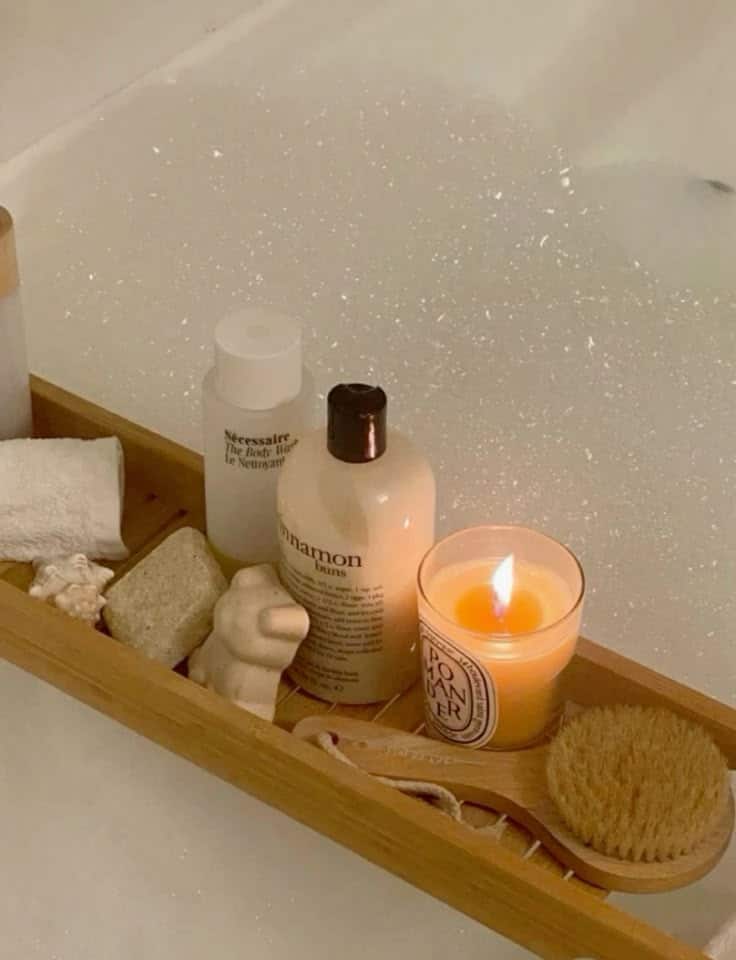
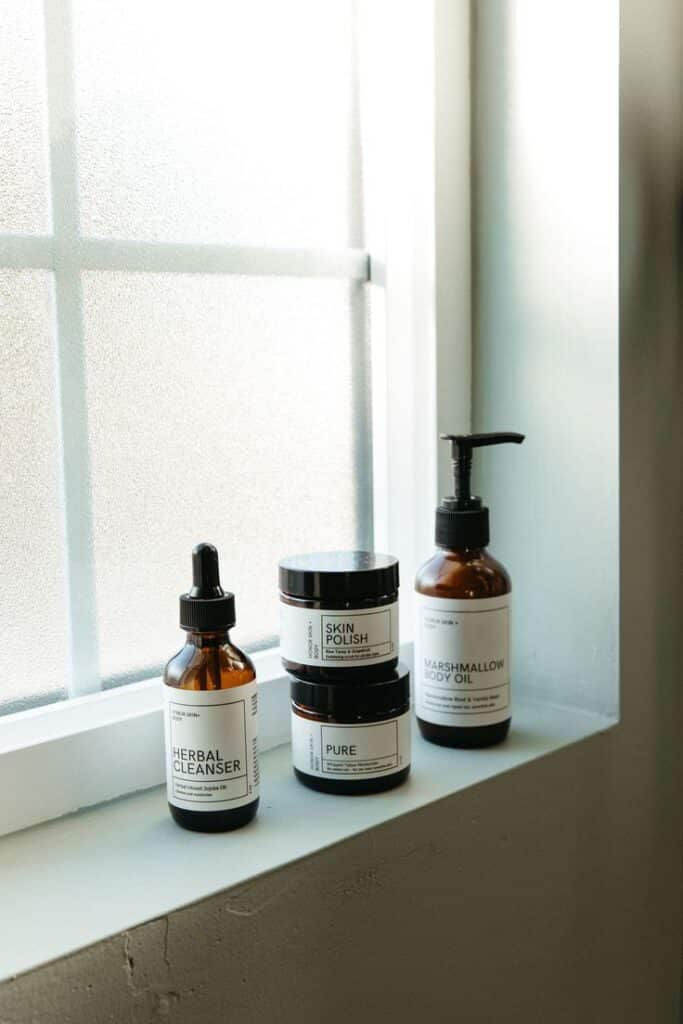
Psychophysiology and the Mind-Skin Relationship
The mind and body closely influence each other through the nervous and hormonal systems. When you’re anxious or under emotional strain, your body triggers the “fight-or-flight” response, increasing inflammation and altering blood flow to the skin.
This stress response can slow down cell turnover and compromise the skin’s ability to defend itself against environmental threats. In some cases, psychological stress triggers itching or increased sensitivity, which makes skin care even more important for comfort and health.
Techniques like deep breathing, progressive muscle relaxation, or mindfulness exercises can help manage this response. Including these simple habits in your daily body care can reduce tension and help restore the balance between your mind and skin.
Common Signs of Stress-Affected Skin
Stress can make your skin react in noticeable ways. You may observe more breakouts, extra dryness or oiliness, or redness—sometimes all at once. For some, fine lines and dullness appear more pronounced.
A helpful table for tracking stress-related skin changes:
| Sign | What to Look For |
|---|---|
| Acne | Sudden breakouts, oily patches |
| Redness | Flushing, visible irritation |
| Dryness | Flaky, rough patches |
| Sensitivity | Increased stinging or itching |
If your skin changes suddenly or becomes uncomfortable, it’s a sign to check in with your self-care habits. Simple adjustments, such as using fragrance-free products or following a calming evening routine, can make a difference.


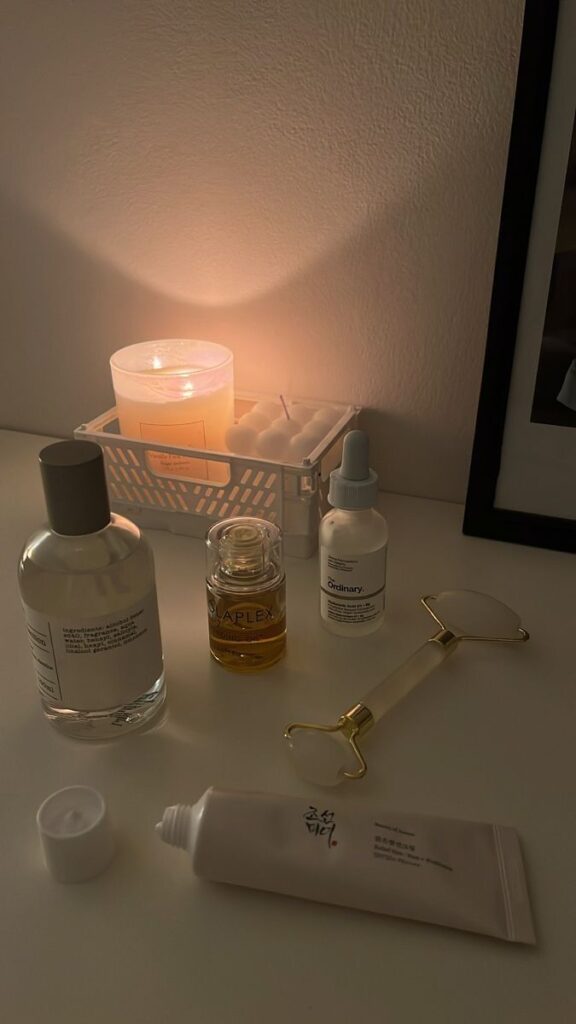
Essential Body Care Routines for Stress Relief
Taking care of your body plays a direct role in reducing stress. Simple routines, practiced with intention, can calm your mind and help you feel more grounded day to day.
Building a Calming Self-Care Ritual
A calming ritual starts with a quiet environment. Dim the lights, turn on soothing music, and use essential oils such as lavender or chamomile to set a relaxing atmosphere.
Begin with gentle stretching to release tension. Focus on slow, deep breathing during each movement. Follow with a warm shower or bath—using a favorite body scrub or soap—letting the warmth relax tight muscles.
Take a mindful moment to moisturize your skin. Choose lotions or oils with calming scents. Pay close attention to the feeling of your hands as you massage your arms, legs, and shoulders. End your ritual with a few minutes of stillness or meditation.
Daily Practices for Consistency
Consistency is key for stress relief. Aim to include small acts of body care in your daily routine. For example, start your morning with a short body scan—notice areas of tension and gently stretch them out.
Midday, take a break for a brief walk. Even a five-minute stroll helps clear your mind and resets your energy. In the evening, prioritize winding down: wash your face, brush your teeth carefully, and spend a minute hydrating your skin.
Simple daily habits can be tracked. Here’s a sample checklist:
| Practice | Morning | Afternoon | Night |
|---|---|---|---|
| Stretching | ✓ | ✓ | |
| Body scan | ✓ | ||
| Walk | ✓ | ||
| Moisturizing | ✓ | ✓ |
Balancing Routine With Flexibility
Rigid routines can sometimes add pressure, so it helps to build flexibility into your body care plan. Choose a few core practices, like stretching and moisturizing, but let yourself adapt as needed.
On busy days, you might swap a full bath for a quick warm towel press on your neck and shoulders. If you miss a step, treat yourself with kindness. The goal is relief—not perfection.
You may also experiment to find what feels best. Some days, a short walk may do more than a long shower. Stay responsive to your needs and adjust your self-care so it supports—not burdens—your daily life.
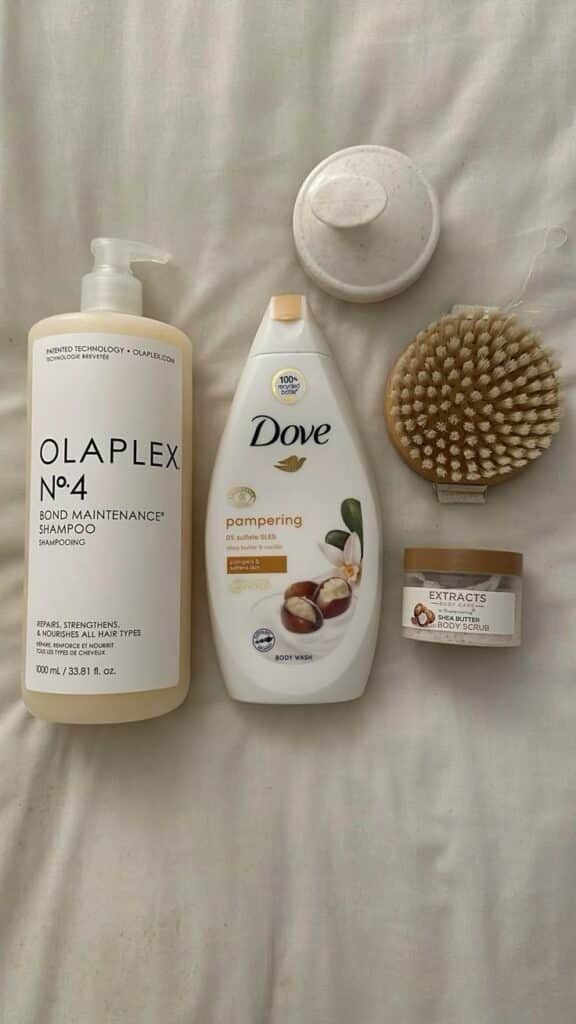
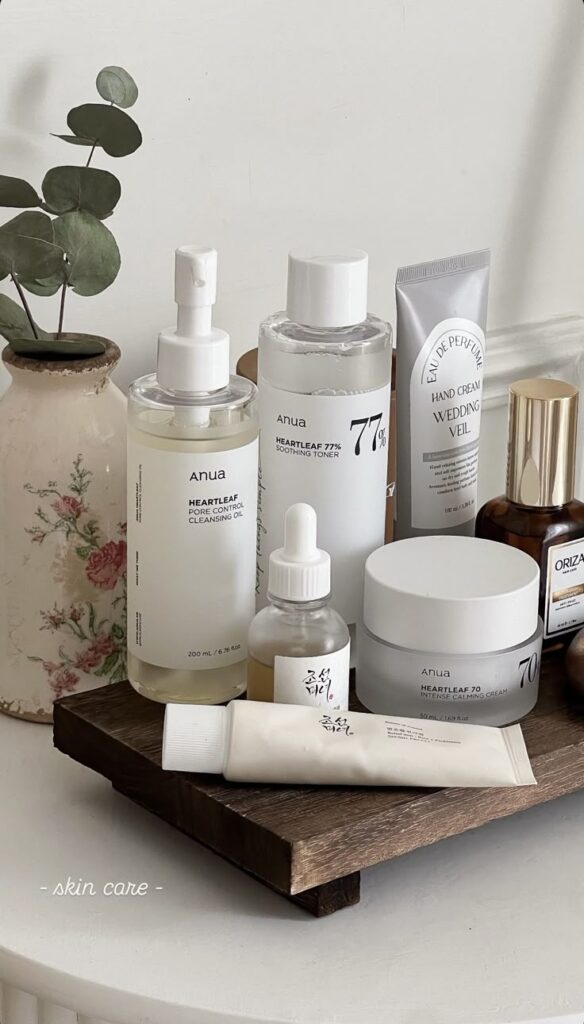

Key Anti-Stress Body Care Methods and Products
Daily body care routines can be a practical way to reduce stress and support your well-being. Specific products and techniques target both your skin health and your sense of relaxation.
Soothing Body Washes and Cleansers
Using a gentle body wash with calming ingredients can help relax your mind while refreshing your skin. Look for formulas containing chamomile, lavender, or oatmeal, as these ingredients soothe irritation and offer a subtle aromatherapeutic effect.
Scents like eucalyptus and sandalwood may also help you wind down and feel more grounded after a long day. Choose products without harsh sulfates or artificial fragrances to minimize skin discomfort and maximize comfort.
A warm shower itself can be a stress reliever, so combining that with a soothing cleanser provides both physical cleansing and a moment of mindfulness. Even a simple unscented cleanser can offer a sense of calm if you use slow, intentional movements.
Relaxing Exfoliation and Body Scrubs
Gentle exfoliation removes dead skin cells and stimulates circulation, which can leave you feeling refreshed and more at ease. Physical scrubs with fine sugar or salt grains, along with nourishing oils, are effective in both exfoliating the skin and providing a calming, spa-like experience at home.
Dry brushing is another popular method—use a natural-bristle brush and gentle, sweeping motions before you shower. This not only buffs the skin but is thought to boost your mood due to increased circulation and endorphin release.
Recommended exfoliating ingredients:
| Ingredient | Benefit |
|---|---|
| Sugar/Salt | Smooth texture, gentle scrub |
| Coffee grounds | Invigorates, reduces puffiness |
| Oatmeal | Calms sensitive skin |
Always follow up exfoliation with hydration to avoid irritation and keep your skin barrier protected.
Hydrating Lotions and Moisturizers
Applying lotion is a simple step that can feel grounding and calming. Lotions infused with essential oils like lavender, chamomile, or bergamot may help ease tension while they hydrate the skin.
Opt for rich creams or body butters if your skin is dry, or lighter gels and milks for normal to oily skin. Focus on slow, massaging motions as you apply—this enhances absorption and lets you incorporate a mini self-massage into your routine.
Key features to look for in stress-relief lotions:
- Non-irritating, fragrance-free formulas for sensitive skin
- Essential oils with calming effects
- Antioxidant-rich ingredients like vitamin E and shea butter
Applying moisturizer after a warm shower or bath helps seal in moisture, leaving your skin soft and your mood more centered.
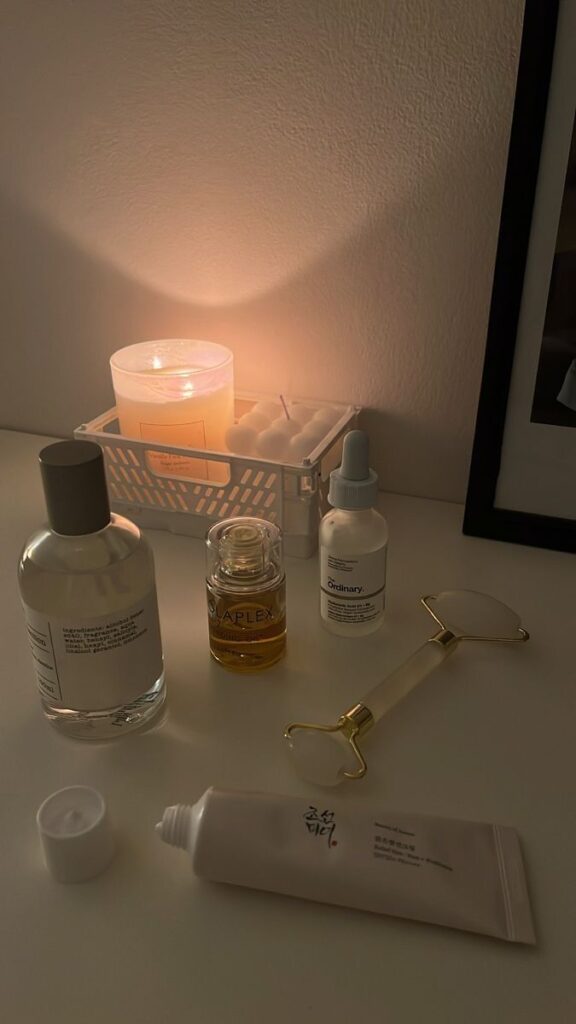
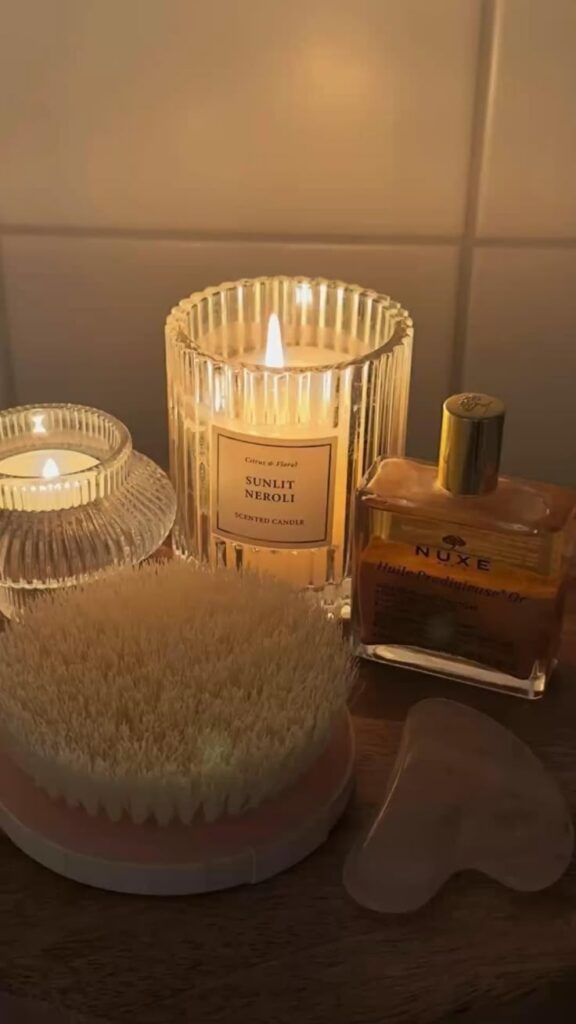
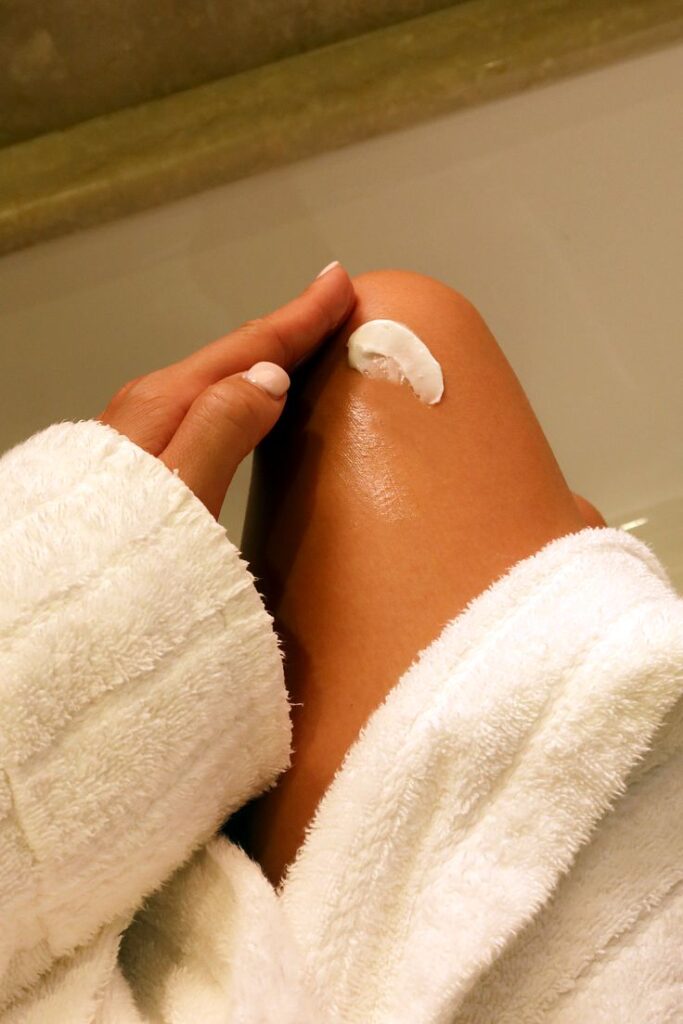
Holistic Lifestyle Tips to Enhance Anti-Stress Body Care
Caring for your body is a powerful way to manage daily stress and support long-term well-being. Simple lifestyle adjustments can make a real difference in how your skin looks, how relaxed your mind feels, and how well your body functions.
Nourishing Nutrition for Healthy Skin
What you eat has a major impact on your skin’s resilience and appearance. Focus on foods rich in antioxidants, such as berries, leafy greens, and nuts, to help your skin repair itself and defend against stress-induced damage.
Include lean proteins like fish, chicken, and beans to support collagen production and cell turnover. Healthy fats from avocados, olive oil, and seeds keep the skin barrier strong and reduce inflammation.
Drinking enough water each day is essential for skin hydration and detoxification. Try integrating herbal teas like chamomile or green tea as soothing, anti-inflammatory alternatives to sugary drinks.
Monitor your intake of processed foods and refined sugars. These can worsen inflammation and trigger stress responses in both your body and skin.
| Nutrient | Food Sources | Benefit |
|---|---|---|
| Omega-3s | Salmon, chia seeds | Calms inflammation |
| Vitamin C | Citrus, bell peppers | Supports collagen and repair |
| Zinc | Pumpkin seeds, lentils | Aids healing and barrier |
Incorporating Mindfulness and Relaxation Techniques
Mindfulness helps you stay present and reduces tension in both mind and body. Even simple breathing exercises can calm your nervous system and lower the impact of stress.
Try setting aside five minutes a day for guided meditation or progressive muscle relaxation. You can also spend quiet time journaling or practicing gratitude, which helps put stressors into perspective.
Gentle movement like yoga or tai chi blends body care with mindfulness. These activities not only improve flexibility and posture but also encourage relaxation and kinder self-talk.
Don’t overlook the power of self-massage, aromatherapy, or simply soaking your feet in warm water. All can release physical tension and soothe mental fatigue.
Optimizing Sleep and Physical Activity
Quality sleep is vital for your body’s ability to recover from daily stress. Aim for 7-9 hours per night by sticking to a consistent bedtime routine and limiting screen time before bed.
Create a restful environment: dim the lights, keep your bedroom cool, and avoid stimulants like caffeine late in the day. These small details can help signal to your body that it’s time to wind down.
Physical activity, even in short bursts, boosts your mood by increasing endorphins and reducing stress hormones. Try a brisk walk, stretching routine, or regular exercise you genuinely enjoy—consistency matters more than intensity.
Allow your body to move and rest in balance. Regular exercise supports healthy circulation, energizes your skin, and helps you process daily stress more effectively.





